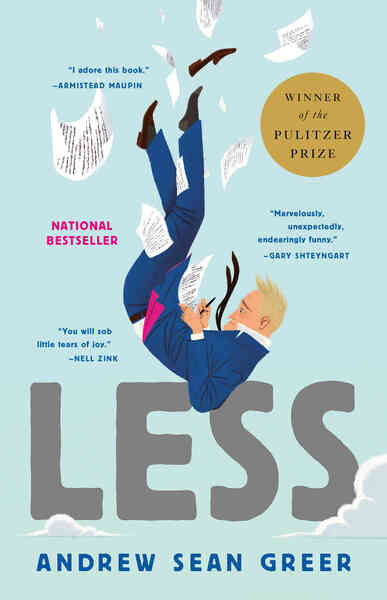Timothy Rice
Less
Just for the record: happiness is not bullshit.

Rating: 2/5 – I am not a member of this target audience.
Less was well written and had a decent if somewhat uninspiring plot, but man I just could not relate to the protagonist at all. On any level. About anything. In my life I have not:
- Been dumped.
- Been scared of birthdays that mark ages evenly divisible by 10.
- Had many previous sexual partners.
- Hooked up with a married person.
- Had a struggling career in the arts.
- Used non-prescription drugs, regularly gotten drunk, or smoked.
- Felt hopelessly adrift and aimless.
It’s true that a good writer will be able to invoke empathy in the reader despite, or perhaps in spite of, these differences. But I felt nothing at all for Arthur Less. Likely that’s because it didn’t really seem like Arthur Less (or any of the other characters in the novel) cared much about what happened to him.
He ran away from a problem, some events happened to him, and he came back home to find the problem he had run from had magically solved itself. I’m not sure what I was supposed to take away from that.
There’s a certain type of character that I describe as wallowing. They tend to be people with fairly mundanely average lives – often fairly privileged – who devote most of their internal narration towards recounting various sufferings and woes. Arthur Less was such a character and ultimately, that is what I cannot relate to, on a very fundamental level. A grey mopey-ness of being.
Every time I encounter a story with a protagonist like this – someone whose life and character seem completely incongruent to my own – I am left wondering who is the weirdo: me, or the character? Really it’s me or the author, since I tend to assume that in most cases the author is really writing about themselves. Are most readers like me, unable to connect to these struggles so passionately described? Or do they instead look to me and think “hey man, none of your life makes any sense to us, either!”
I genuinely have no idea which it is.
I wonder if many of the anxieties of the book are related to a childless lifestyle. Without kids it’s natural that everyone you know will grow old with you and slowly you’ll lose your connection to youthful people. Without the burden of raising the next generation, it would make sense that someone would have less (hah!) of a sense of purpose. It would also follow sense that romantic love would seem to be so overwhelmingly important, as one would be bereft of familial love, especially after the death of your parents.
Anyways, if you’re a middle aged gay man with an arts career, this book may speak profound truths to you. Otherwise? I’d read something else.